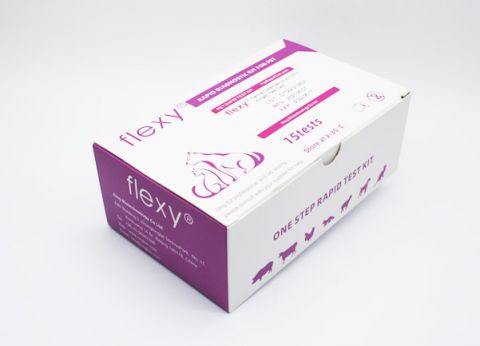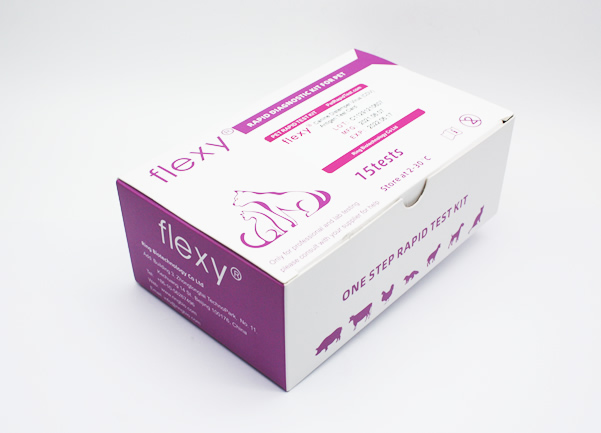
Feline Coronavirus Antigen Test Card is a lateral flow rapid test to detect FCoV antigen in cat feces.
Basic information
Feline coronavirus (FCoV) is a positive-stranded RNA virus that infects cats worldwide. It is a coronavirus of the species Alphacoronavirus 1 which includes canine coronavirus (CCoV) and porcine transmissible gastroenteritis coronavirus (TGEV). It has two different forms: feline enteric coronavirus (FECV) that infects the intestines and feline infectious peritonitis virus (FIPV) that causes the disease feline infectious peritonitis (FIP). Feline coronavirus is typically shed in feces by healthy cats and transmitted by the fecal-oral route to other cats.
Please also be noticed that Canine or Feline coronavirus (CCoV) is not the same virus as SARS-CoV-2 that causes the novel coronavirus (COVID-19). CCoV or FCoV does not affect people. CCoV or FCoV causes gastrointestinal problems in animals, as opposed to respiratory disease.
Key facts of the Feline Coronavirus Antigen Test Card
- Ready to use kits for pet owners and vet clinic
- No special instrument required
- Suitable for field test
- Result in 10min.
Feline Coronavirus Antigen Test Card Kit Components
| Item # | Item | Qty |
|---|---|---|
| 1 | FCoV Ag Rapid Test Card | 15 pcs |
| 2 | Sample buffer tube | 15 bottles |
| 3 | Plastic pipettes, 0.5ml | 15 pcs |
| 4 | Kit instruction, | 1 set |
FCoV diagnosis
Both Rapid test and RT-PCR can be used for FCoV diagnosis, however, fecal FCoV RT-PCR tests should be interpreted cautiously. Single positive or negative tests are meaningless as cats may shed intermittently or may be recently infected. To be identified as a chronic shedding carrier, a cat should be fecal virus positive on multiple tests over an 8-month period. A cat that tests negative on monthly tests over a 5-month period of time may be considered a non-shedder. (Addie D.D., Jarrett O. 2001 Use of a reverse-transcriptase polymerase chain reaction for monitoring the shedding of feline coronavirus by healthy cats. Veterinary Record. Vol 148. pp. 649-653.)




